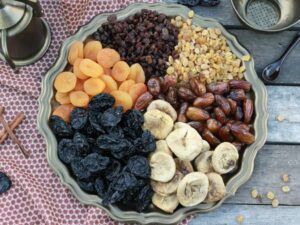Looking For Snack Meals To Assist With Your Excess Weight Reduction?

papaya
Papaya – digestive food
The delicious tropical fruit of papaya contains an enzyme called papain that aids in digestion.
This substance helps the digestion process by helping to break down protein
fibers. Although it does not need to be included in the diet, it can help with protein digestion.
Papain can also reduce symptoms of irritable bowel syndrome (IBS), such as constipation and bloating.
This enzyme is usually used as the main enzyme in digestive supplements due to its digestive capacity.
Summary
Papaya contains papain, a powerful digestive enzyme that aids in the healthy digestion of proteins and can also relieve IBS symptoms.
- Whole grains
Cereals are the seeds of wheat grass plants. To be included in the category of whole grains, its kernel must contain 100% bran, germ and endosperm.
Whole grains – digestive food
Whole grains rich in fiber include barley, quinoa, farro and products made from whole wheat. The fiber in these seeds helps improve digestion in two ways.
First, fiber helps bulk up stools and can reduce constipation.
Second, some grain fibers act like probiotics and help feed the healthy bacteria in the gut.
Summary
Due to its high fiber content, whole grains can reduce constipation by increasing stool volume and feeding healthy intestinal bacteria.
- tempeh
Tempeh – digestive food
Tempeh is obtained from fermented soybeans. In the fermentation process, sugars are broken down by bacteria and yeast.
During this process, a type of nutrient found in soybeans called phytric acid is broken down. Phytric acid can aid in the absorption of certain nutrients.
Therefore, the fermentation process improves digestion and absorption of nutrients.
Fermented foods such as tempeh are a good source of probiotics. Remember that probiotics create a protective barrier to protect the gut from harmful bacteria.
Studies have shown that probiotics help reduce IBS symptoms, prevent diarrhea, reduce bloating, and regulate stool patterns.
Summary
Tempeh fermentation process and probiotic content can reduce negative digestive symptoms and improve nutrient absorption by breaking down fitric acid.
- Beet
Beet – digestive food
Beetroot, also known as beets, is a good source of fiber.
One cup (136 grams) of beets contains 3.4 grams of fiber. Fiber passes through the digestion stage, goes to the large intestine where healthy gut bacteria are fed, or is added to the bulk of the stool, both of which improve digestion.
Popular ways to eat beets are roasted, mixed in salads, pickled or blended into smoothies.
Summary
The nutrients in beets can help improve digestion by helping to feed good gut bacteria and add bulk to stool.
- miso
Miso – digestive food
This substance, which is usually used in miso soup, is prepared by fermenting soybeans with salt and koji, which is a type of mushroom.
Miso contains probiotics that, like other fermented foods, aid in digestion by increasing the good bacteria in the gut.
The probiotics in miso can also help reduce digestive problems and overcome intestinal ailments such as diarrhea.
Summary
The probiotic content of miso is helpful in reducing digestive problems and overcoming intestinal ailments such as diarrhea.
- ginger
Ginger – digestive food
Ginger is a traditional ingredient in Eastern medicine that helps improve digestion and prevent nausea. Many pregnant women use this substance to treat morning sickness.
In terms of digestion, this yellow root accelerates the emptying of the stomach.
By quickly transferring food from the stomach to the small intestine, ginger reduces the risk of heartburn, nausea and stomach discomfort.
Summary
Ginger seems to speed up the movement of food in the stomach and reduce some of the side effects of slow digestion.
This drug is also used to treat nausea, including morning sickness during pregnancy.
- Kimchi
Kimchi – digestive food
Kimchi is usually made from fermented cabbage but can also be made from other fermented vegetables.
This substance contains probiotics that help digestion and promote the growth of good bacteria in the large intestine.
The longer the kimchi fermentation time, the higher the concentration of probiotics.
Also, kimchi contains fiber that can help increase stool volume and improve intestinal health.
Summary
Kimchi contains probiotics and fiber that improve digestion and promote gut health.
- Dark green vegetables – food for improving digestion
Green vegetables are an excellent source of insoluble fiber.
This type of fiber increases the volume of feces and increases the speed of its movement along the digestive tract.
Green vegetables are also a good source of magnesium, which can help relieve constipation by improving muscle contractions in the digestive tract.
Spinach, Brussels sprouts, broccoli, and other leafy greens are some of the most common dark green vegetables that have this benefit.
A 2016 study also found that an unusual sugar found in green leafy vegetables helps feed good gut bacteria.
This sugar is thought to aid digestion while also harming some harmful bacteria that can cause disease.
Summary
In addition to providing dietary fiber and magnesium, green vegetables contribute to healthy digestion by feeding good gut bacteria.